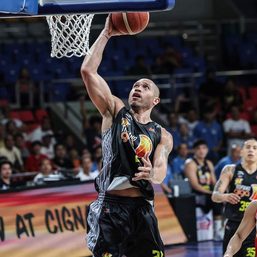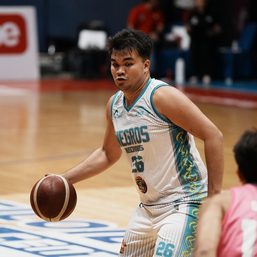SUMMARY
This is AI generated summarization, which may have errors. For context, always refer to the full article.

This calls for a celebration – not just for the government and the Moro Islamic Liberation Front (MILF) but for those who directly shared the cost of the struggle.
I am a Tausug who grew up in the island-province of Tawi-Tawi. My family had to leave Sulu to escape the war in 1970s.
Although I was not a member of any liberation movement, I heard many stories about the conflict from my late grandfather. He would tell me how my relatives were among the countless names who had to shed blood in war.
For some reason, a part of me feels incomplete because my immediate family was not directly affected by the conflict. I had to listen to stories about relatives and cousins I have not met but who fought the war. I was raised in a somewhat different environment. And for this I sometimes feel anonymous.
I have been working for peace all my life. I have joined various Muslim youth organizations that focus on peace and development. I even joined a nongovernmental human rights group that directly deals with human rights violations within the peace process.
And now that a new prospect for peace is coming, I can’t help but think hard about many things.
Technically, this is the second time that a president listened to us. And I think we better make it worthy.
Healing and tapping the youth
More than the flawed structure that we intend to replace with the coming of a new political entity, we need healing – especially for those who fought and sacrificed for the cause. We also need to acknowledge that we have to pay homage to them.
But there’s another challenge that this looming political transformation should consider. It has to create the environment that will encourage a broader mass of young Moros to get involved in leadership.
The youth consists of the majority (56%) of the population of the Autonomous Region in Muslim Mindanao (ARMM).
And If there’s one thing that the current ARMM government should really take pride in, it is the number of active young Moro professionals who are directly participating in the governance aspect of the 25-year regional bureacracy. It’s the first time this has happened in the history of ARMM.
They come from various fields before entering the ARMM government: academe, youth movement, private institutions, non-governmental organizations, among others.
From the start, these young Moros were determined to be part of reforming the ARMM and refused to accept things as they are. They did not think that the ARMM, given its institutional infirmities, cannot live up to the aspirations of the men and women who have shed blood and tears for it. They believe change can happen.
And it is the same spirit that we want to see in the coming of the new Bangsamoro goverment. We’d like to see a Bangsamoro that directly engages its youth in governance, a Bangsamoro that puts premium in the role of youth in fulfilling the aspirations of its people.
In the face of changes and challenges, the fervor of the youth must never wane for it is their critical presence that will help make sure that the gains and commitments are sustained.
The new political entity is seen to set a new horizon for the Bangsamoro people. Hopefully, it will roll out endless possibilities for the young ones.
On Thursday, March 27, the government and MILF will sign the Comprehensive Agreement on the Bangsamoro. It’s probably my people’s last chance to be within reach of a silver lining, a rainbow of hope bursting with possibilities. – Rappler.com
Amir Mawallil, 26, is the executive director of the Bureau of Public Information of the Autonomous Region in Muslim Mindanao. He is the founding chairperson of the western Mindanao chapter of Young Moro Professionals Network (YMPN), the largest non-governmental organization of Muslim professionals in the country. A former BusinessWorld correspondent, Mawallil covered the government-MILF peace negotiations for two years. He also worked for the Mindanao Human Rights Action Center, the largest human rights NGO in Mindanao, as its communication officer.
Add a comment
How does this make you feel?





There are no comments yet. Add your comment to start the conversation.